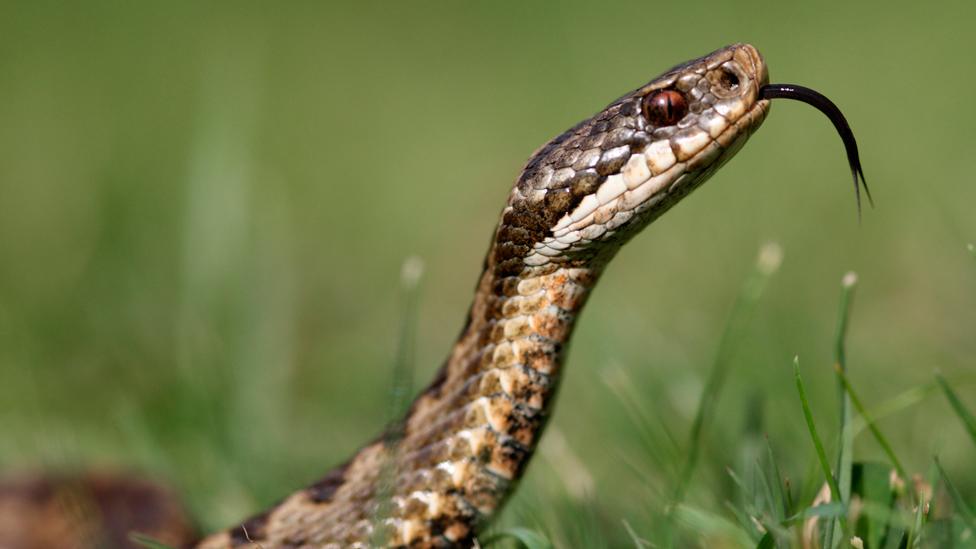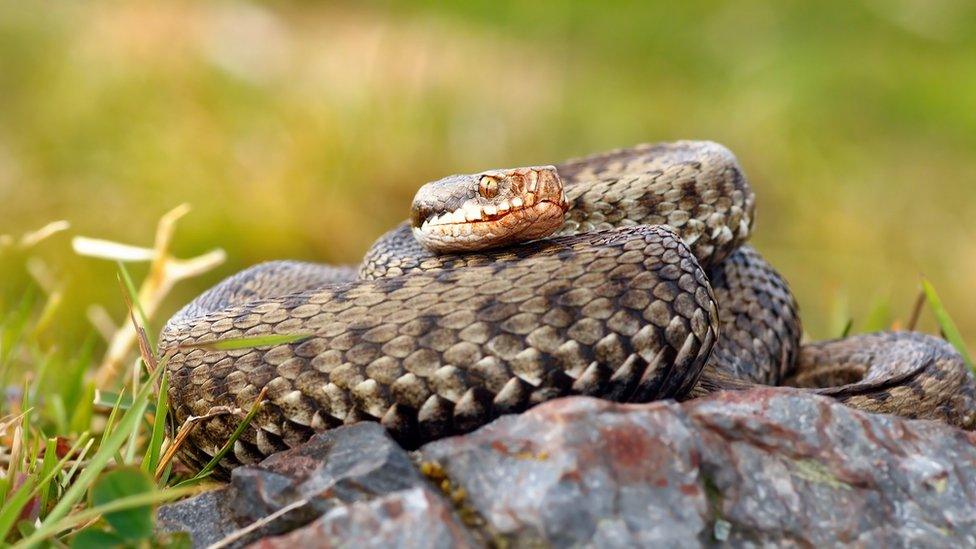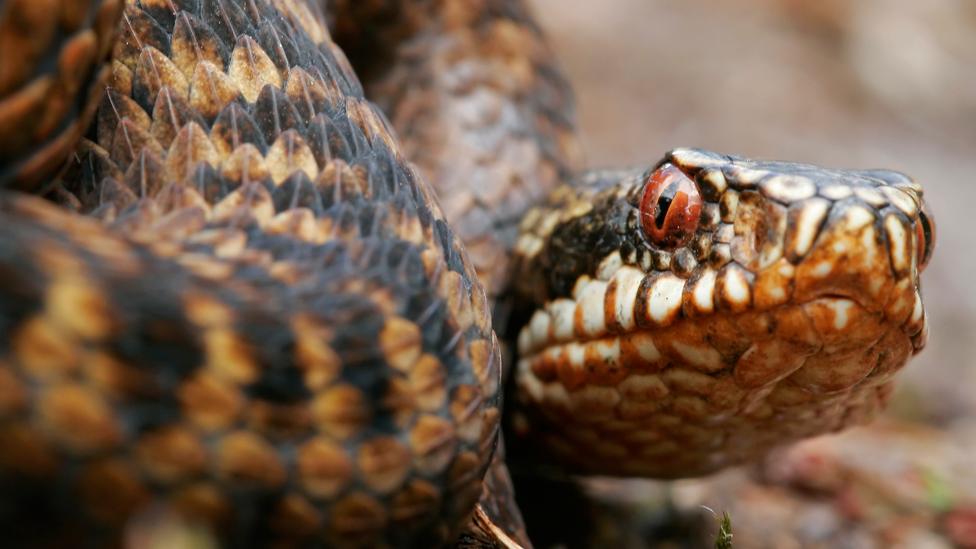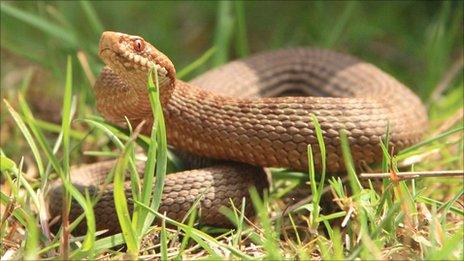Bid to return 'extinct' adders to Nottinghamshire
- Published

Adders can be found in other parts of the East Midlands
Conservation groups are trying to bring adders back to Nottinghamshire after surveys suggested they were extinct in the county.
The People's Trust for Endangered Species (PTES) said it hoped the snakes would be returned to the county within five years as part of the project.
A PTES spokesperson said the decline in the species "was really troubling".
The group warns adders could completely disappear from the UK "within 16 years" without intervention.
Bad press
Erin McDaid, from Nottinghamshire Wildlife Trust which is part of the project, said the snakes have had an unwarranted bad press in recent years.
He said there had been increasing reports of adder bites in the county but there was no real evidence to suggest the snakes were behind the attacks.
"It's frustrating because it hampers our cause to bring back a valid part of our eco-system.
"They exist perfectly well with people and dog walkers in places like the New Forest, so there's no real scientific grounds for people to be concerned," he said.
Mr McDaid said the small adder population had declined due to loss of habitat.
But he said he hopes to see them slithering through places like Sherwood Forest again.
He said: "We feel duty bound to bring them back.
"Adders are still in Leicestershire, Derbyshire and Lincolnshire - there's no reason for Nottinghamshire to stay adder-free."
Nida Al-Fulaij, grants manager at PTES, said adders were believed to be extinct in Nottinghamshire, Warwickshire and parts of Greater London, although there was a chance some "remnant" adders remained in these places.
Nottingham Trent University is also supporting the project which will follow reintroduction guidelines, external by the International Union for Conservation of Nature.

'Almost never fatal'

UK's only venomous snake
Its colour is greyish with a dark zig-zag pattern
Hunts lizards, small mammals and birds
Length: 60 - 80cm (27 - 31in)
Weight: 50 - 100g (1.7 - 3.5oz)
Average lifespan: Up to 15 years
Its bite can be painful but almost never fatal
Source: Nottinghamshire Wildlife Trust

Follow BBC East Midlands on Facebook, external, Twitter, external, or Instagram, external. Send your story ideas to eastmidsnews@bbc.co.uk, external.
- Published23 October 2018

- Published3 August 2018

- Published15 December 2011
